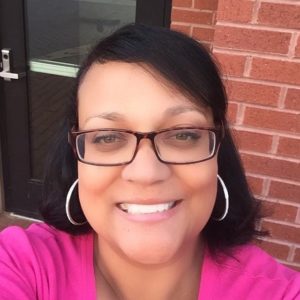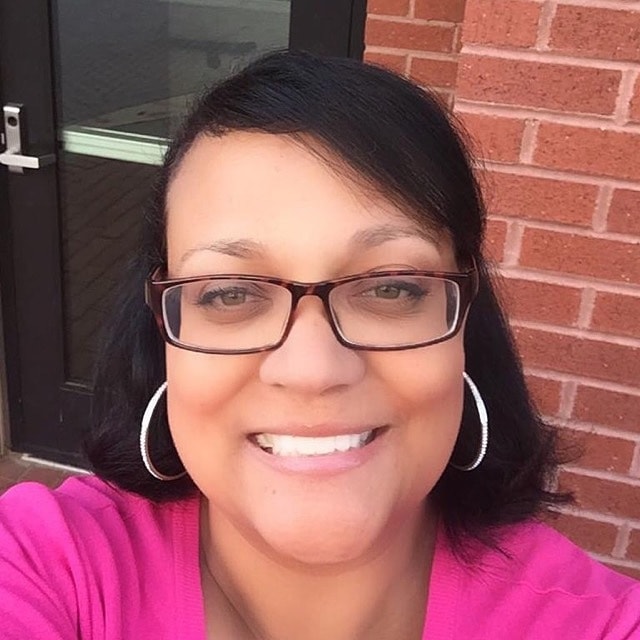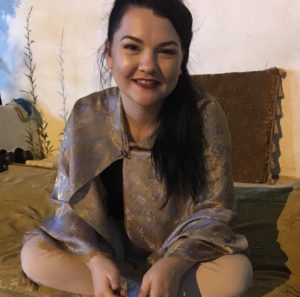 Women AdvaNCe would like to celebrate Crystal Cavalier Keck as our Woman to Watch for November 2019.
Women AdvaNCe would like to celebrate Crystal Cavalier Keck as our Woman to Watch for November 2019.
Crystal “Red Bear” Cavalier Keck has been a trailblazer and an advocate for women across North Carolina. She became involved with the issue of missing and murdered persons in our state through a surprising experience. One morning, at a gas station in Brown Summit, she saw a woman jump out of a car and beginning running. She found out this woman was a human trafficking victim from Roxboro. This experience lead to Cavalier Keck’s epiphany that if human trafficking could happen in Brown Summit, North Carolina then it could happen in her own neighborhood. She decided to get plugged into movements in our state to bring awareness to missing and murdered people. She started volunteering at the sheriff’s office because she had questions that needed answers.
Cavalier Keck hails from the Pleasant Grove “Little Texas” community of Alamance County. She is Occaneechi Saponi and has served on the tribal council. She is a sister of Alpha Pi Omega Inc., the oldest Native American Greek letter organization, and also has 5 wonderful children. She graduated from UNC-Greensboro with a degree in Political Science, and earned her Masters in Public Administration from UNC-Pembroke.
Cavalier Keck worked for the Department of Defense and Department of Homeland Security. During her time as a federal government employee she became aware of just how poorly native peoples are treated in the United States.
When she returned home to North Carolina, Cavalier Keck began volunteering in her community. She learned of construction plans for the Mountain Valley Pipeline Southgate, a highly pressurized natural gas line scheduled to end in Alamance County near her home and tribal lands and founded the NC Democratic Native American Caucus which stood in unity against the Mountain Valley Pipeline. Cavalier Keck had paddled the Haw River and experienced wildlife there she had never seen before. She knew the pipeline was slated to be built through this beautiful untouched land and would certainly destroy the NC treasure.
Cavalier Keck began speaking to her community members about standing up to the pipeline builders. She wanted each tribe in NC to be involved in protecting native ancestral lands from unscrupulous developers and for native youth to become more involved in their culture by participating in the pipeline protests.
In addition to opposing the pipeline, Cavalier Keck stood alongside Braiding the Sacred, a “movement of indigenous corn cultures” that aims to provide indigenous seeds like Tuscarora white corn as well as other types of corn and beans. Her goal her was to involve native youth in community gardens, while ensuring her tribe had access to healthy and adequate food sources through bridging the gap between traditional and non-traditional.
When Cavalier Keck discovered that if a human trafficking victim doesn’t tell the police their ethnic background, that police just assume their ethnicity or “race.” She says the majority of folks in this country have such a romanticized view of what a native person is supposed to look like. Cavalier Keck noted that many native people were probably miscategorized by government officials as “white,” “black” or “Hispanic.” Since authority figures saw some human trafficking victims as “just addicts,” they cared very little about classifying them correctly. These misclassifications of native victims have led to inaccurate reporting of violence and crime against native peoples in our state.
Cavalier Keck decided to organize a march in NC for missing and murdered people, with a focus on native women last May. Participants showed up from all over the state, from as far as Wilmington at our coast and the Eastern Band of Cherokee reservation lands in the NC mountains. Family and friends of 2012 murder victim, Faith Hedgepeth whose murder remains unsolved, also attended the event.
Missing persons are a major concern in many North Carolina native communities. In Robeson County, many people of varying genders, ethnicities, ages and socioeconomic backgrounds have vanished. These vanishing people have been an issue for decades. Their cases are still unsolved.
Crystal Cavalier Keck aims to make change in the way people view natives. Many people think native peoples must look like characters from Twilight, Pocahontas or Dancing with Wolves in order to be considered native and dismiss the variety of phenotypes, hair textures, colors and other attributes of native people. She remembers being taught in the 4th grade that the “Croatan” Indians were extinct and that there were only “Cherokee” Indians in North Carolina. She also remembers how her grandmother hated the time around Thanksgiving and her family’s refusal to dress her up as an “Indian” for school events. She was dressed as a pilgrim instead. Cavalier Keck’s activism began early.
Today, Cavalier Keck’s achievements as a public servant, community organizer, champion for victims, and advocate for youth in her community, state and country set her apart as a woman to watch. Please join Women AdvaNCe in watching Crystal Cavalier Keck. She is just getting started.
Nicki Faircloth is called “vegetable soup” by her father because of her mixed identity as a person of Native, Hungarian, Mexican and various other bloodlines. She is also part of Women AdvaNCe’s Leadership Team.


There are no comments
Add yours